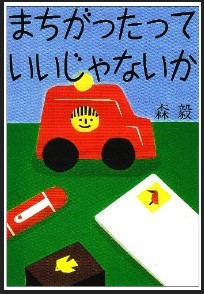じゃないか (ja nai ka) Meaning Japanese Grammar - Isn't It?
Anna Baffa Volpe
Get in touch with meThe structure じゃないか (janaika) is a negative interrogative form and means isn't it?, right?.
It is preceded by nouns, adjectives and verbs.
In this post we learn more about the meaning of じゃないか, how it is formed and when じゃないか is used through real example sentences.
How and when to use じゃないか
This structure is used to express emotions such as surprise at something unexpected, but also blame and anger depending on the situation.
With this form you also ask your interlocutor for confirmation of what you are saying.
It is true, isn't it? Right?
Expression: いいじゃないか: Why not? It's fine, isn't it?, Never mind.

まちがったっていいじゃないか。
It doesn't matter if you're wrong.
How じゃないか is formed
じゃないか is formed:
- by じゃない or ではない, negative forms of the
copula だ - and by the interrogative particle か
ではないか is more formal than じゃないか.
不景気 refers to recession, crisis and 影響 means influence, effect, impact
これは不景気の影響ではないか。
This is the recession’s effect, isn't it?
高い Adjective in い, means high, expensive, expensive
このレストランは高いじゃないか。
This restaurant is expensive, isn't it?
素敵な Adjective in な means beautiful, magnificent, splendid
Title of a CD by The Beach Boys: 『Wouldn't It Be Nice』

素敵じゃないか。
Wouldn't it be nice?
十分な means enough, sufficient
もう十分じゃないか?
Isn't that enough?
料理を全部一人で作ったじゃないか。
You did all the cooking by yourself, didn't you?
With adjectives ending in い and verbs we often find the form んじゃないか.
いやな風だ。台風が来るんじゃないか。
It's a nasty wind, isn't there a typhoon coming?
彼の話し方から彼が医者ではないかと思った。
The way he spoke made me think he was a doctor.
Volitive / exhortative form and じゃないか
Another common structure is formed by じゃないか or ではないか combined with the volitive / exhortative form of the verb. We translate this form as: come on let's do!, why don't we do?
Ichidan verbs: the volitive form is obtained by removing the syllable る and adding よう.
- Why don't we eat?
- Come on, let's eat! Godan Verbs: the Volitive form uses the Base in お or B5 + the vowel う.
- Let's drink come on!
- Why don't we drink?
彼の話を最後まで聞こうじゃないか。
Let's listen to him until the end, shall we?
ちょっと疲れたから、この辺りで少し休憩しようじゃないか。
I'm a bit tired, so why don't we have a little rest around here?
- Since I'm a bit tired, let's rest here for a moment!
今日は食べたり飲んだりして楽しもうじゃないか。
Why don't we eat, drink and have fun today?
In this last sentence we find a form commonly used in Japanese: たり~する to list a sequence of actions.
誰もやらないのなら、わたしがやろうじゃないか。
If no one else will do it, I will do it.
- If no one does it, it means that I will.
Examples of じゃないか
全然電話がつながらない。もしかして番号が間違っているのではないか。
I can't get through on the phone at all. Perhaps the number is wrong.
その逆じゃないか?
Isn't it the opposite?
コンピュータを壊してしまったじゃないか。
You broke your computer.
Similar grammar points in Japanese 📚
~ていく
~ていく (teiku) Meaning Japanese Grammar - Keep Doing
てよかった
てよかった (te yokatta) Meaning Japanese Grammar - I'm Glad That...
それでもいい
それでもいい (soredemoii) Meaning Japanese Grammar - It's Fine
それでも
それでも (sore demo) Meaning Japanese Grammar - Still
させられる・せられる
させられる・せられる (saserareru serareru) Meaning Japanese Grammar - To Be Made To Do Something
ないで
ないで (naide) Meaning Japanese Grammar - Without Doing